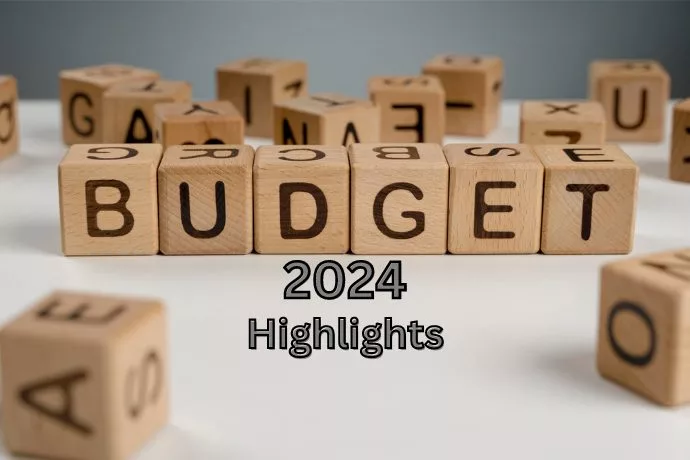Key Union Interim Budget 24 Highlights

FM Nirmala Sitharaman presented her sixth budget in parliament today. The Interim Budget for the year 2024 did not highlight any major developments as was anticipated, but it did set a strong foundation for inclusive and sustainable growth of the country going forward. Right ahead of the upcoming Lok Sabha elections, the Indian government introduced a slew of progressive measures on 1st February 2024, such as affordable homes and new capex targets, but did not provide any relief for salaried taxpayers.
But before we delve into the highlights, it is essential to understand the difference between interim and annual budgets. Since 2024 is an election year, the government in power cannot release a full Budget as there can be changes in execution after the polls. Which is why an interim budget was presented today and the next ‘full budget’ will be released in July 2024, once the new government is in power after the elections.
Some significant highlights from the Interim Budget 2024:
While the fiscal deficit for 2023-24 is at 5.8% of the GDP, the fiscal deficit target for FY 25 is expected to be at 5.1% of the country’s GDP. This target aims to reduce the fiscal deficit to below 4.5% of the GDP in FY 2026. For the uninitiated, a fiscal deficit is the gap between the government’s revenue and expenses. With aggressive fiscal consolidation strategies and effective revenue mobilization as seen in FY 2024, the government aims to repeat its success story in the new financial year as well.
Interestingly, India’s capital expenditure was raised by 11% to a historic INR 11,11,111 crore in today’s interim budget. With the aim of investing more in infrastructure, such as railways, the move is also said to create many job opportunities eventually. In last year’s full budget, the capex outlay was proposed to be increased by 33% to INR 10 lakh crore in FY 2024.
Further, in an effort to improve the operations of passenger trains, FM Sitharaman introduced three key economic railway corridor programs to boost the efficiency of logistics and thereby reduce costs. Ultimately, this could result in safety and higher travel speeds for passengers.
Though no changes to income tax slabs and import duty were introduced, start-ups and some IFSC units have a reason to be jolly as some tax benefits and exemptions have been extended till March, 2025.
Moreso, the Finance Minister announced the withdrawal of outstanding direct tax demands up to INR 25,000 till the financial year 2009-10 and up to INR 10,000 from the
financial years 2010-11 to 2014-15. This major declaration is said to benefit about one crore taxpayers in the country.
The budget also focused on India’s youth, poor, women and farmers. Under the Pradhan Mantri Awas Yojana (Gramin), a social welfare program meant to provide rural housing for the poor in India, Sitharaman announced the construction of two crore more houses in the next five years. The finance minister also stated that all ASHA and Anganwadi workers and helpers will also be included in the healthcare coverage under Ayushman Bharat.








